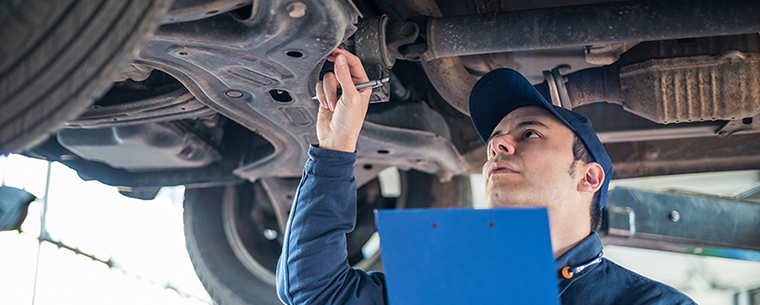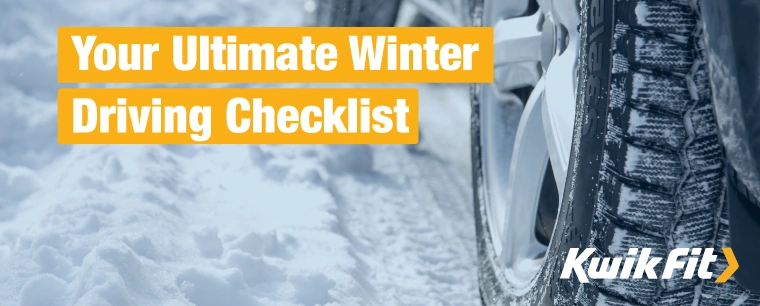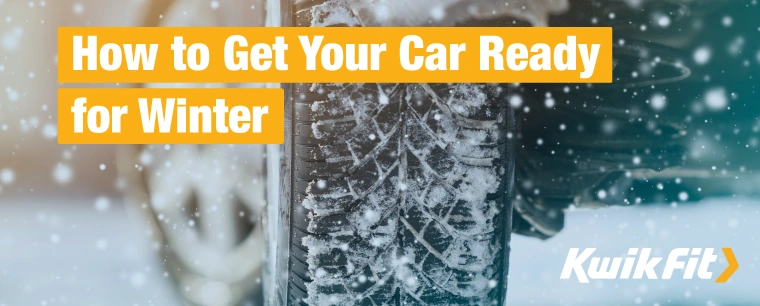What are the Most Common MOT Failures?
Bradley Jando | Monday 5th October 2020 3:35pm

Many motorists worry about their annual MOT and can be unaware of what will cause their vehicle to fail before the test itself. Despite this concern, approximately 70% of all cars pass their MOTs, so the odds are in your favour, and a lot of the issues flagged in an MOT can be resolved quickly.
With that said, we’ve outlined the most common MOT failures so you are better prepared for when yours comes around!
What is an MOT and why do you need one?
First things first, an MOT is a mandatory check that tests the inner and outer workings of your vehicle, making sure that it meets the minimum legal requirements to be considered safe in the roads. These standards are outlined by the Driver and Vehicle Standards Agency (DVSA).
All cars older than three years in the UK must pass a yearly MOT test, unless it was made before 1960 in which case the vehicle is exempt.
What checks are done on MOT?
MOTs comprehensively cover all the areas of your vehicle to make sure it's safe for you to drive and for other drivers on the road. MOTs check everything from the bulbs, reflectors and electrical equipment to steering, suspension and breaks.
So, what are the most common MOT failures?
With over 24 million car MOTs being conducted between August 2019-2020 it's no surprise that some trends emerge! From the study it revealed that a majority of failures were caused by either a faulty suspension pin, bush, joint or bearing excessively worn.
Though a damaged or faulty suspension system is something that you should get a professional to look at there are however a number of areas that might result in a failed MOT test that you yourself can easily rectify.
Faulty or Broken Bulbs
Bulbs and lights are an easy fix, but catch a lot of people out in their MOT, as they can be easily overlooked. To avoid this, before your MOT make sure to check all the bulbs in and around your vehicle, ask a friend to help as you check the front, rear, brake, fog, indicator, registration plate lights and rear reflectors. That way you can easily identify any issues.
Most bulbs are easily replaceable but should you need some extra support, get in touch with an expert.
Tyre Tread
The DVSA revealed that 10% of all MOT faults are related to tyres.
Understandably, tyres can be the reason for many MOT failures, after all, they are the only part of the car that is in contact with the floor at any time, taking the brunt of impacts and rough surfaces. All this wear takes its toll on the tread depth.
The tyre tread of a new car is approximately 8mm, while the minimum legal depth is 1.6mm. It's highly recommended that you replace the tyres at no less than 2mm depth, any more than this and you run the risk of an accident occurring. Check your tire tread throughout the year to ensure they are road legal.
Replacing tyres is relatively inexpensive and might be a crucial step to passing your MOT.
Suspension
Speaking of things that take the brunt of impacts, the suspension can just as easily be the culprit as to why your car fails its MOT. Motorists are no stranger to hidden potholes and patchy road surfaces and these too take their toll on your vehicle.
A damaged suspension can alter wheel alignment and affect the tyres too, so making sure this is checked is vital for road safety. Unfortunately checking your suspension isn't as easy as checking your bulbs and unless you know what you are looking for, it can be hard to identify any issues.
It’s a good idea to have an annual car service that will check for any suspension issues that you might have picked up over the past 12 months.
Brakes
One in ten (9.6%) MOT failures are due to brake issues, and some issues are more apparent than others. Major failings usually present themselves in the form of spongy pedals and or the car pulling to either the left or right when applying the brakes. This is more than likely a sign of wear in your brake pads and will need immediate attention from a professional.
Similarly to your suspension, your brakes should be checked yearly for any sign of damage.
Book your MOT
Those are our most common MOT failures that you should watch out for, some easy fixes and some that are easily overlooked! Find out if your vehicle is MOT ready and get in touch with our experts should you need an extra hand!
Any facts, figures and prices shown in our blog articles are correct at time of publication.
Featured Articles
Is Your Car Battery Ready for Winter?
Monday 11th November 2024
Is the UK on the verge of ‘the coldest winter for 50 years?’ Even if El Niño doesn't hit the UK this winter, reduce the risk of a winter breakdown by making sure your car battery is winter-ready.
Your Ultimate Winter Driving Checklist
Monday 31st October 2022
Driving in the colder months presents many challenges. Breakdowns are far more common in winter, so make sure you’re prepared with these essentials.
How to Get Your Car Ready for Winter
Wednesday 28th September 2022
Winter can be a harsh season for your car but planning ahead by carrying out some basic maintenance and packing some essential kit should help you avoid a winter breakdown.







